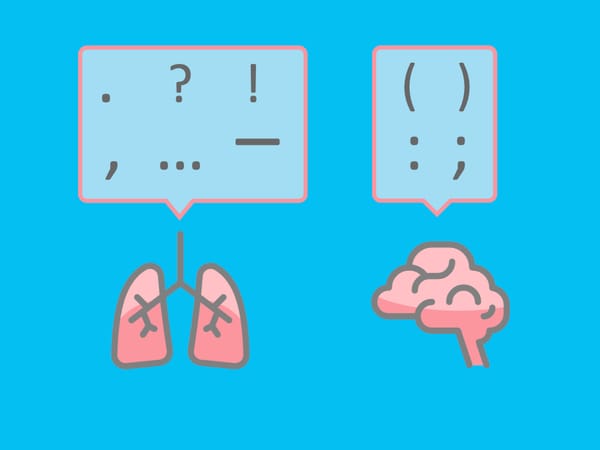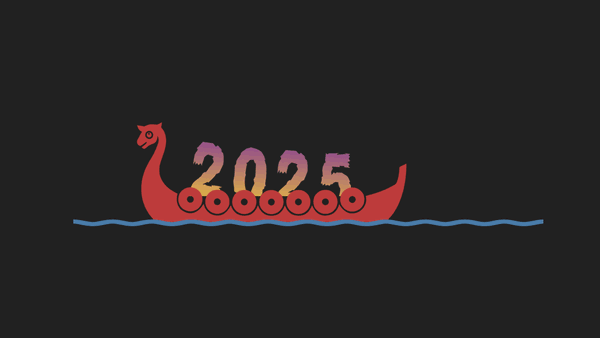Life as an iceberg

I’ve been thinking about icebergs this week. It’s not a climate warming kind of thing, although boy howdy, we’ve had to set up an umbrella to protect a prize hosta in our backyard from the very un-Seattle heat.
You know how the What’s Going On section of this newsletter is usually a digression from the main topic? Well, this time it kind of is the main topic. Because it’s all good news, and I can never let good news just be good news. I have to dig in and ask what does it mean? And in this case, it means more good news.
Here, take a look at this week’s What’s Going On, and I’ll explain my (opaque as ever) thought processes after.
What’s going on?
- Your Parasite and You is going to be part of Toronto's prestigious Fantasia International Film Festival this summer. The festival runs July 16 through August 3 (!), with YPaY showing as part of the Le Cabaret des curiosités 2025 short film block on 31 July. If you’re in Toronto for any of the dates of the festival, check it out. They have an amazing slate of films planned from all over the word.
- Speaking of YPaY, it’s also been selected as part of a special package of films from the Crypticon Film Festival chosen to show at the Seattle Worldcon 2025, coming up this August. Worldcon is where they award the Hugos, one of science fiction’s most prestigious awards. While YPaY is in no way up for a Hugo, it ’s a great audience to be seen by.
- And a side project of mine (they’re all side projects, but still…) was just accepted to be shown – and nominated for an award – at the Jane Austen Film Festival in Bath, England this September 5-6. The short film is called Ophelia Teaches Herself to Swim, and is an exercise in poetry and graphic motion unlike anything I’ve done before. The Jane Austen Film Festival was my target festival for the piece. So I am, to use the location-appropriate term, chuffed to be nominated.
What is a normal number of “no’s?"
So that was a bunch of good news, wasn't it? It really has been a fun couple of weeks for my video work. And, like anyone raised Catholic, I was faintly ashamed to post that much good news at once.
Just to reassure myself that there was a dark side to all this, I went back and looked at the festival accept/reject ratio for Your Parasite and You. It makes for an interesting chart.
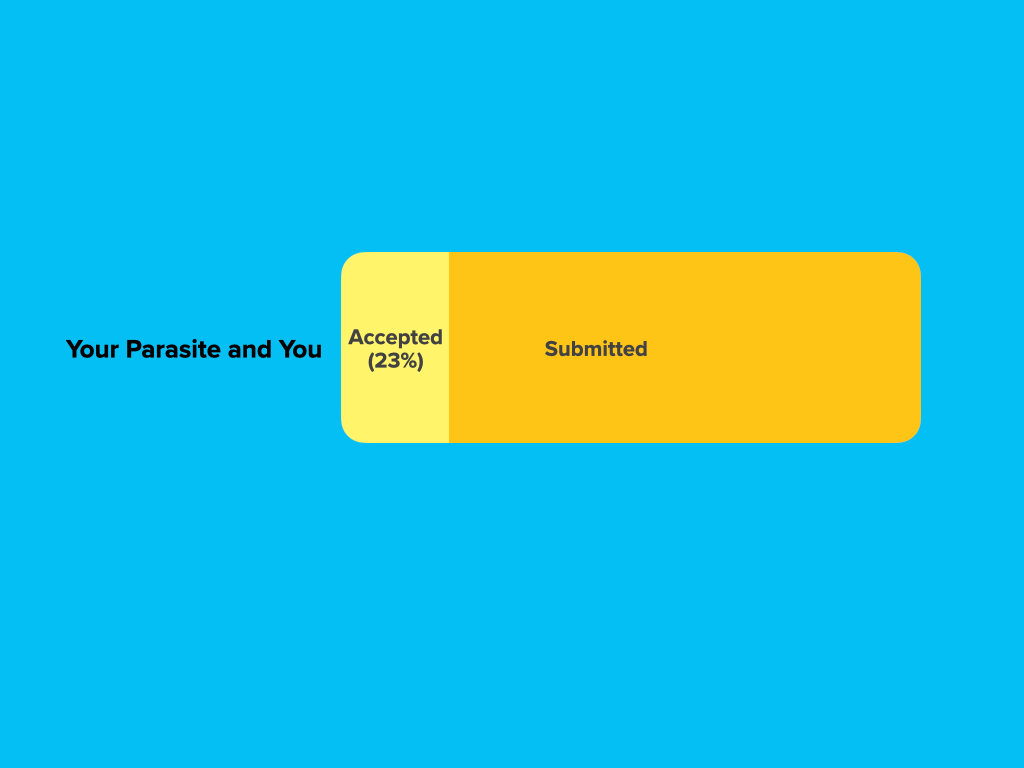
YPaY has an acceptance rate of about 23% out of all the festivals I apply to. So over its past festival run, I received 1-3 rejections every month. That’s one of the reasons I’m so happy the one time out of four when it does make it into a festival.
But is this normal? Could this seemingly low accept/reject ratio flag some problem with YPaY? Just what is success in the short film/film festival world? And how do I work the system?
To answer these questions, I needed data. So I charted the accept/reject ratios of my top five-performing videos. Here they are, listed in order of how many festivals I sent them to.
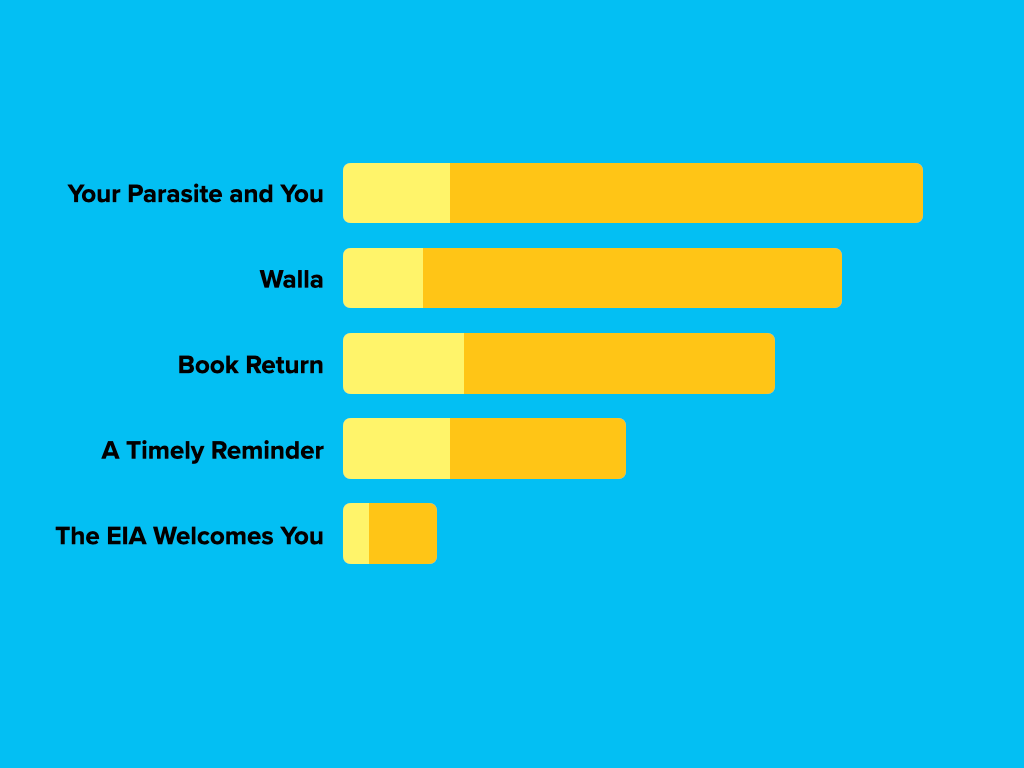
The first thing that struck me was how similar these ratios are. Yes, a couple of them look like a little higher than others. But if you look at these graphs and kind of squint, there’s not a lot of difference between them.
Book Return and A Timely Reminder have high accept/reject ratios in part because I was pretty focused and conservative on what festivals I applied to. So a “focused and conservative” approach to application selection can push the ratio a little higher.
But really, not that much. And even when I got aspirational with the applications – like with Walla and YPaY – the accept/reject ratios are still in the same neighborhood as the others.
So maybe, just maybe, there is nothing wrong with any of these ratios. Maybe this is normal. Maybe this is just life. And then I remembered something I heard from a legendary Hollywood screenwriter.
A very nice rebel with a compassionate cause
When I was in the Screenwriting Certificate Program at the University of Washington, one of our instructors was Stewart Stern. He was an Oscar-nominated, Emmy-winning screenwriter, best known for writing Rebel Without a Cause.
Stewart was a reassuring presence, kind, experienced, and realistic about the demands of the writing life. And one class, he told us a story that has resonated with me ever since. It wasn’t about screenplay structure or dialog or character. It was about life itself.
Stewart told us about talking with a friend of his, an English teacher who had just retired after decades teaching.
At one point in their conversation, he asked, “How many of your students have come back to thank you?”
His friend held up a couple of fingers. “Two,” he said. Out of all those years, all those dozens of classes filled with hundreds of students, only two of them returned to let him know that his teaching had mattered to them.
“And that’s about right,” his friend added.
He wasn’t expecting feedback, awards, accolades, or laurels and hearty handshakes. For him the point of it was the teaching. Teaching English mattered to him, and he trusted that it helped others. Surely, there was a host of students he had helped, but he would never know who they were, or even how many. And he was fine with that.
By telling us that story, Stewart was trying to prepare us for the myriad rejections of the creative life. Or, really, just life. We don’t know, we can’t know, how most of our actions affect others. We can just hope that what we do is the right thing. And that it matters.
And remembering Stewart sitting us down like a beloved grandfather to share his wisdom about life made me think, in the weird way our squishy brains work, about icebergs.
Our lives as helpful icebergs
You've heard that most of an iceberg is hidden underwater. I looked up exactly what that percentage is, and holy cats, look at this.
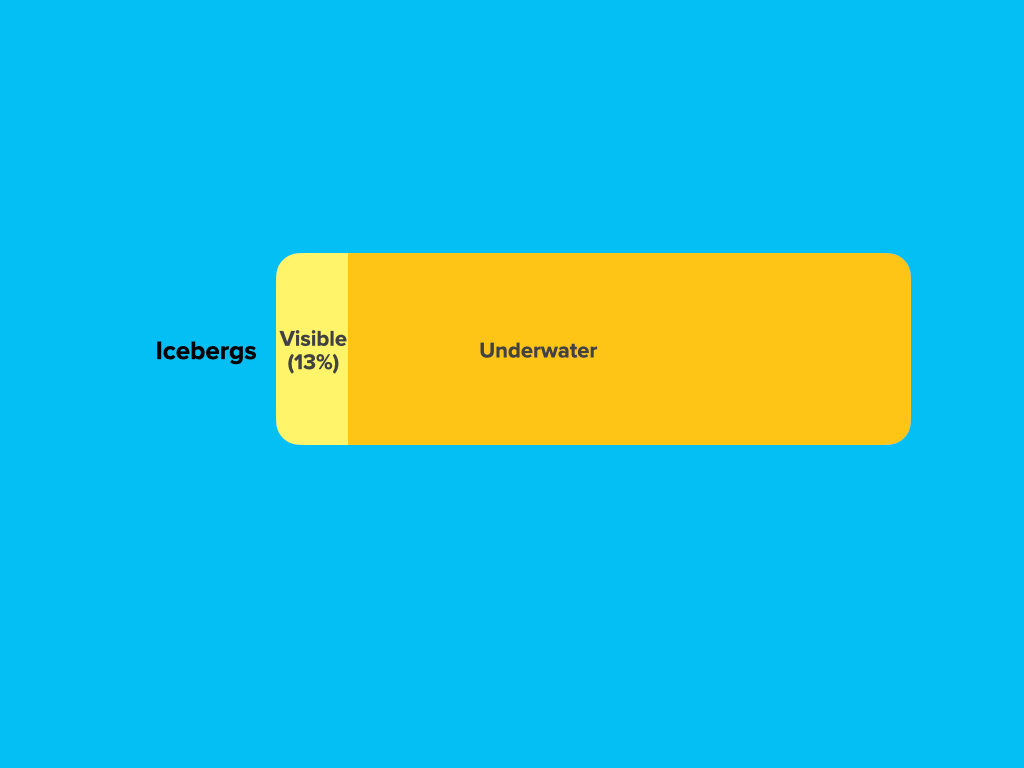
When I saw this chart my first thought was – well, my first thought was of the Titanic – but my first on-topic thought was that this could be a visualization of Stewart’s story about his friend. He had done so much, and yet was only allowed to see a sliver of the difference he made.
And maybe that’s how life works. We’re icebergs. Our rewards and feedback all live in that 13% above the water. We do the best we can to shape and steer the visible part of the berg – all while there is so much going on below the surface.
I just hope I make the right choices to shape the 87% of interactions I will never know the effect of. All I can do is try to maintain a course I’m proud of, doing things I believe in, for people I love.
All in all, a pretty good life for an iceberg.
Fun facts to know and share
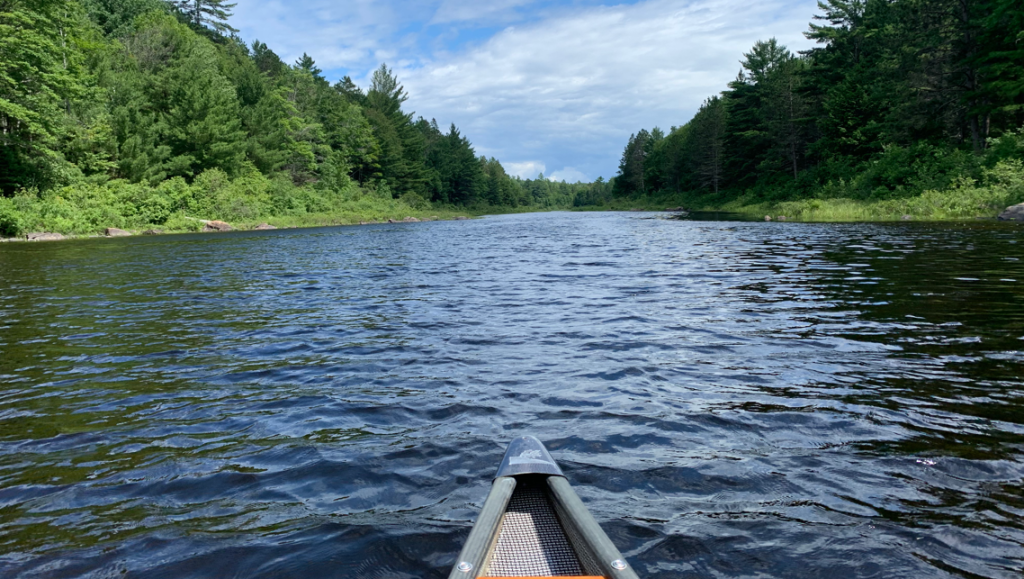
An amazing resource to see who was in your neighborhood first.
“We are going to be changed. Do we change organically, in order to roll with those punches? Or is it going to be like the dam that changes because eventually the pressure becomes so great that it breaks, and everything is left in ruin? Gradual change is something you can adapt to. Sudden change is something you can’t.”
Author Adrian Tchaikovsky on adapting to climate & ecological upheaval.
Yeah, that’s a lurid thumbnail, but this 15 minute AI-generated synopsis of a Japanese movie based on a manga is a multi-layered parfait of crazy, each layer brightly colored and intoxicating. When you get to the bottom you will have no idea what reality even is any more. I gleefully incflict this on share this with you.
"The love of money as a possession — as distinguished from the love of money as a means to the enjoyments & realities of life — will be recognized for what it is, a somewhat disgusting morbidity, one of those semi-criminal, semi-pathological propensities which one hands over with a shudder to the specialists in mental disease.”
John Maynard Keyne’s vision for the future, quoted in Robin Sloane's The Golden Sardine newsletter. I sure hope this happens soon.

This “minimal ambient" album can actually make you nostalgic for long-haul flights. I played it a lot during the lockdown.
Over to you
There have been times when I have had no positive feedback from any source, visible or “underwater," even as I worked hard on something I knew was good and necessary.
Like being a caregiver to someone seriously ill. It’s hard. When I’ve been in those situations, I just try to stay the course, and accept that the positive will come later. And it always does, even after months or years of hopelessness. There are things that are rewarding to do, and there are things that are rewarding to have done.
If you’re taking care of a loved one, or have ever been in the caregiver role, please give yourself a warm embrace for just being there, even if your loved one isn’t in a place to do it themselves. Especially if they aren’t. Because they would if they could.
Until we talk again, I remain,
Your pal,
Jamie


